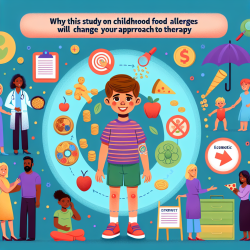Introduction
In the realm of speech-language pathology, effective communication strategies are vital, not only for therapeutic success but also for navigating the broader landscape of public perception and policy. The 1976 public relations campaign by the Sugar Association, as analyzed in the research article "In defense of sugar: a critical analysis of rhetorical strategies used in The Sugar Association’s award-winning 1976 public relations campaign," offers valuable insights into strategic communication that can be applied in our field.
Understanding Corporate Apologia
The Sugar Association’s campaign utilized corporate apologia, a rhetorical strategy designed to defend an organization against criticism. This approach involved counterattacking critics, differentiating the perceived wrongdoing, and, when necessary, offering apologies coupled with corrective actions. These strategies were not only about defending sugar but also about maintaining the industry's social legitimacy.
Application in Speech-Language Pathology
As practitioners, understanding these communication strategies can enhance our ability to advocate for our field and our clients. Here’s how:
- Counterattack with Data: When faced with criticism or misconceptions about speech-language pathology practices, use robust data and evidence to counteract misinformation. Just as the Sugar Association used scientific claims to defend sugar, we can leverage research to support our methodologies.
- Differentiation Strategy: Clearly differentiate between myths and facts about speech and language disorders. Educate stakeholders about the nuances of our field, emphasizing the evidence-based nature of our interventions.
- Apology and Corrective Action: In cases where our practices may fall short, acknowledge these shortcomings and outline steps for improvement. Transparency and a commitment to continuous improvement can build trust with clients and the community.
Encouraging Further Research
The Sugar Association’s campaign underscores the importance of ongoing research and adaptation. In speech-language pathology, staying abreast of the latest research and being willing to adapt our practices accordingly is crucial. Encourage collaboration with researchers to explore new methodologies and validate existing practices.
Conclusion
By understanding and applying strategic communication techniques, speech-language pathologists can better advocate for their field and improve outcomes for their clients. The lessons learned from the Sugar Association’s campaign highlight the power of well-crafted communication strategies in shaping public perception and policy.
To read the original research paper, please follow this link: In defense of sugar: a critical analysis of rhetorical strategies used in The Sugar Association’s award-winning 1976 public relations campaign.










